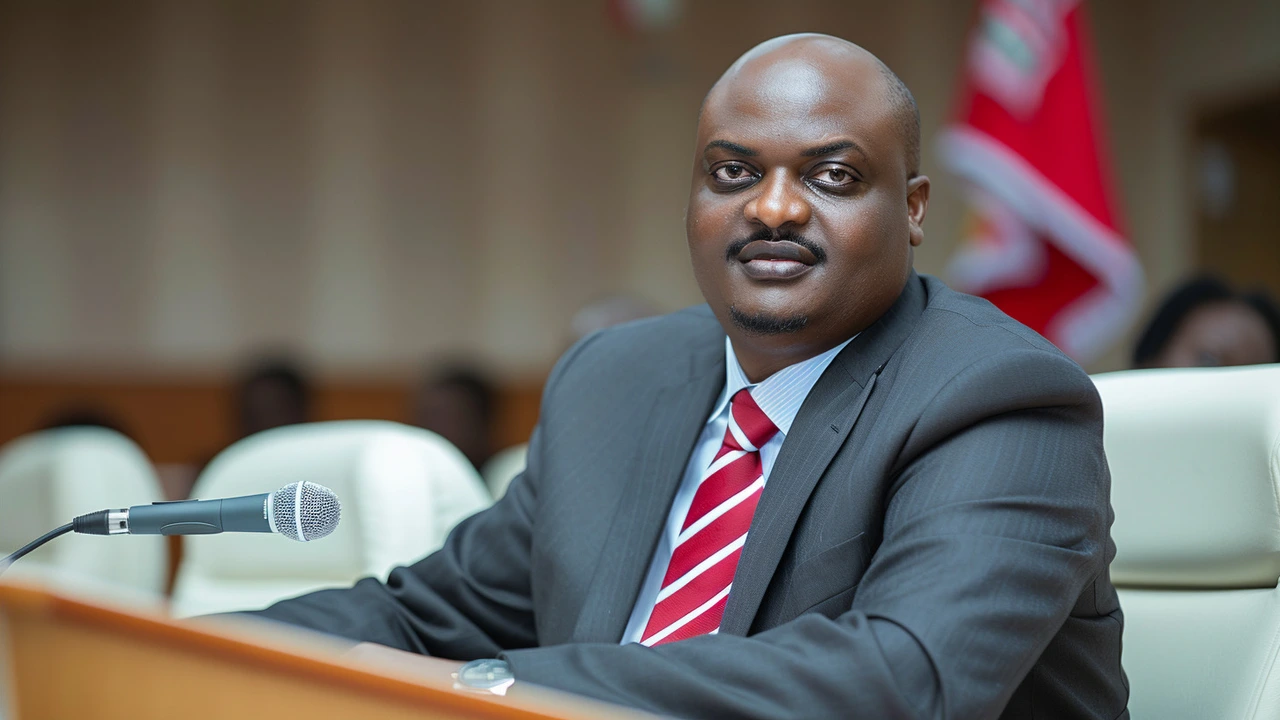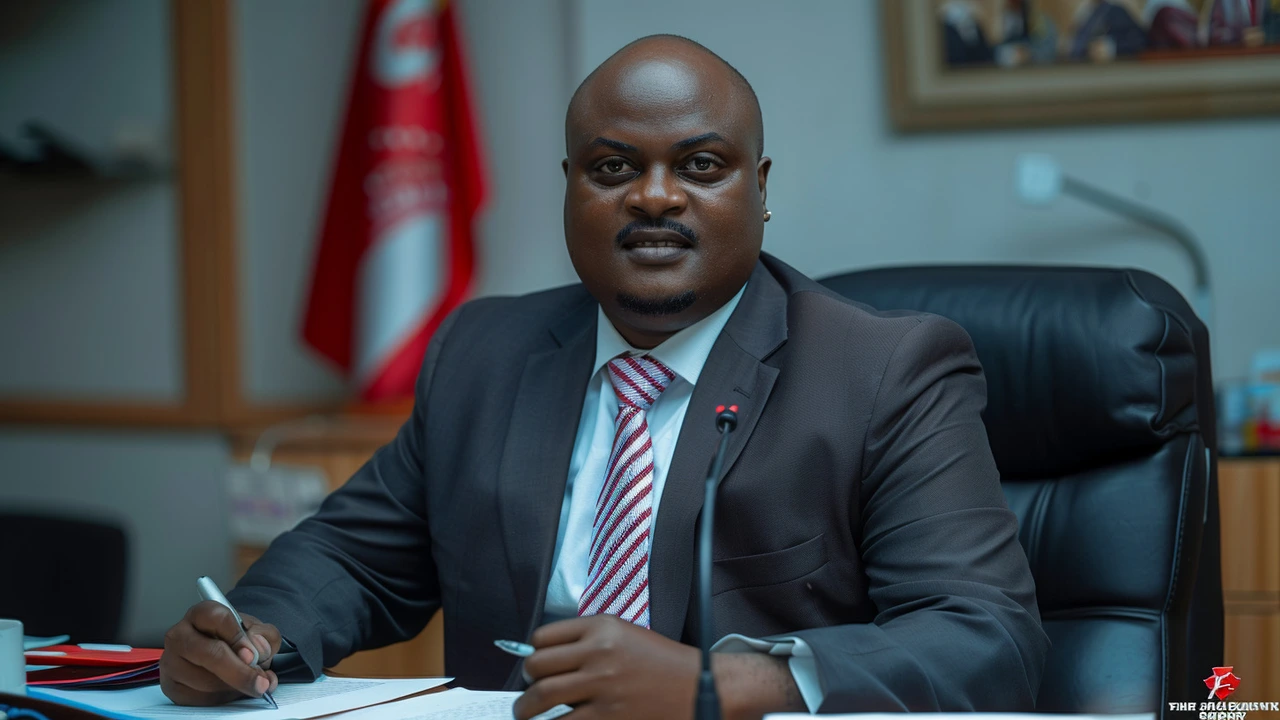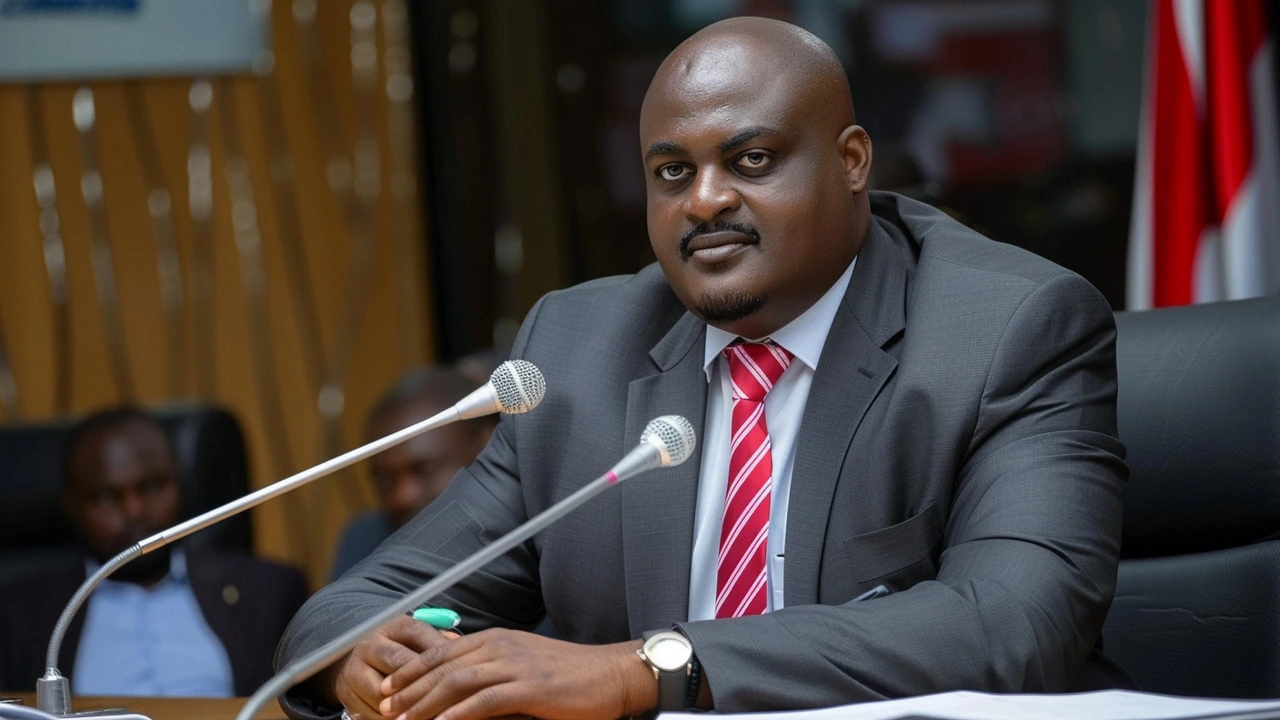Former EFCC Chairman Ibrahim Lamorde Passes Away at 61
Nigeria mourns the loss of one of its notable public figures, Ibrahim Lamorde, who served the nation in various capacities and left an indelible mark on the country’s fight against corruption. The former Chairman of the Economic and Financial Crimes Commission (EFCC) passed away at the age of 61 while receiving medical treatment in Egypt on Sunday. His death marks the end of an era for many who saw him as a stalwart in Nigeria’s relentless battle against corruption and financial crimes.
Lamorde’s tenure as chairman of the EFCC remains one of the most significant chapters in Nigeria’s anti-corruption chronicles. Born in Mubi, Adamawa State, Lamorde displayed academic prowess early in life, eventually earning a degree in sociology from Ahmadu Bello University in Zaria. This foundation set the stage for a career dedicated to enforcing law and order and clamping down on financial malfeasance. His life journey reflects a steadfast commitment to public service, an ethos he embraced wholeheartedly from his entry into the Nigeria Police Force in 1986 to his retirement as deputy inspector-general.
From Police Officer to Anti-Corruption Crusader
Lamorde’s career trajectory is as remarkable as it is inspiring. Joining the Nigeria Police Force in 1986, he rose through the ranks, showing an unwavering dedication to duty that saw him earn respect and admiration from colleagues and the public alike. By the early 2000s, Nigeria was grappling with rampant financial crimes, necessitating the establishment of an agency specifically to combat this menace. The birth of the Economic and Financial Crimes Commission in 2003 saw Lamorde appointed as its pioneer director of operations, a position that would define much of his professional life. In this role, Lamorde was instrumental in setting the operational frameworks that guided the EFCC's early successes.

Leadership at the Helm of the EFCC
Lamorde's leadership at the EFCC began in earnest when he was first appointed as acting chairman by former President Goodluck Jonathan in 2011. His appointment came at a critical juncture in Nigeria's anti-corruption efforts, and he quickly set to work to bolster the agency’s effectiveness. By 2012, his position was formalized following Senate confirmation, allowing him to implement long-term strategies aimed at curbing corruption.
Under Lamorde's stewardship, the EFCC did not shy away from taking on high-profile cases. His tenure saw the prosecution of numerous politicians, government officials, and business moguls, which sent a clear message that no one was above the law. His relentless pursuit of justice earned him both accolades and criticisms. Supporters lauded his dogged determination to dismantle corrupt networks, while detractors often accused him of being selective in his operations. Nevertheless, Lamorde remained focused on his mission, believing that the fight against corruption was crucial for Nigeria's socio-economic development.
The Legacy of a Dedicated Public Servant
Ibrahim Lamorde's death is not just a loss for his family and friends but for the entire nation. He leaves behind a legacy defined by tireless work, integrity, and an unyielding commitment to justice. His role in the EFCC set the pace for many reforms that subsequent leaders have built upon. His contributions to Nigeria's anti-corruption framework are invaluable, and his name will forever be associated with the strides made in combating financial crimes.
Reflecting on his life, it is clear that Lamorde was more than just an EFCC chairman. He was a man driven by a profound sense of duty to his country and a belief in the rule of law. His academic background in sociology might have provided him with unique insights into the societal impacts of corruption, informing his holistic approach to combating it.

A Storied Career in Law Enforcement
Lamorde's career in law enforcement spanned several decades, during which he earned numerous accolades and rose to significant heights, culminating in his role as deputy inspector-general of the Nigeria Police Force. His time in the force was marked by various successful operations against criminal activities and a solid reputation as a police officer committed to upholding the law without fear or favor. His transition to the EFCC was seen by many as a natural progression of his fight against crime, albeit on a larger, more impactful scale.
As Nigerians mourn his passing, it is also an opportunity to reflect on the importance of the work Lamorde championed. Corruption remains one of Nigeria's most significant challenges, affecting every aspect of the nation’s life, from governance and public services to economic development. Lamorde’s efforts have undoubtedly moved the needle, setting the foundation for future anti-corruption endeavors.
The Human Side of Ibrahim Lamorde
Though widely known for his professional accomplishments, those who knew Lamorde personally often speak of his humility, kindness, and dedication to family. Beyond the public eye, he was a devoted husband and father, a friend to many, and a mentor to those who sought his guidance. His academic background and professional achievements cannot fully capture the essence of the man whose quiet strength and resolve inspired many around him.
During his time at Ahmadu Bello University, Lamorde was known for his scholarly zeal and a deep interest in understanding the social fabrics that hold societies together. This intellectual curiosity perhaps played a role in shaping his perspective on corruption and its far-reaching impacts. It equipped him with the knowledge that combating corruption wasn't just about punitive measures but also about understanding and addressing the underlying societal issues that foster it.
The outpouring of tributes following his death is a testament to the lives he touched. Colleagues from the EFCC, counterparts in the Nigeria Police Force, government officials, and citizens alike have paid homage to a man whose career was characterized by unyielding integrity and passion for justice. The numerous condolence messages reflect the high regard in which he was held and the collective sense of loss felt by many.
A Final Farewell
As the nation bids farewell to Ibrahim Lamorde, it is an opportune moment to revisit and recommit to the ideals he stood for. The battle against corruption is far from over, but the groundwork laid by Lamorde provides a robust platform on which to continue this essential work. His legacy serves as a reminder that the rule of law is paramount and that the fight against corruption is a continuous journey that requires the collective effort of all Nigerians.
Ibrahim Lamorde may have left this world, but his contributions will continue to resonate. He will be remembered not just for the positions he held but for the earnest dedication with which he served his country. His life’s work serves as an enduring inspiration to those who believe in justice, integrity, and the power of good governance.

13 Comments
SAI JENA May 26 2024
It is essential to recognize the profound impact that Ibrahim Lamorde had on Nigeria’s anti‑corruption framework. His strategic leadership at the EFCC set a benchmark for institutional integrity and operational rigor. By championing high‑profile prosecutions, he demonstrated that accountability knows no rank. Future reformers should draw inspiration from his disciplined approach and unwavering commitment to the rule of law. The nation owes a debt of gratitude for his service.
Donny Evason May 29 2024
While the homage to Lamorde’s legacy is warranted, we must also interrogate the systemic barriers that persist despite his efforts. The philosophical underpinnings of a corrupt system extend beyond individual agency, demanding a cultural shift that aligns civic virtue with governance. Without confronting these deeper narratives, the battle remains superficial.
Hariom Kumar May 31 2024
Lamorde’s journey truly shows that perseverance can reshape a nation’s destiny 😊. His dedication reminds us that every honest effort adds a brick to the fortress against corruption. Keep the spirit alive!
Phillip Cullinane June 2 2024
In reflecting upon the macro‑structural implications of Lamorde’s tenure, one cannot overlook the intricate interplay between regulatory enforcement mechanisms and macro‑economic stability. His operational paradigms introduced a multi‑layered compliance architecture that synergized investigative protocols with forensic accounting techniques, thereby augmenting the evidentiary threshold for prosecutorial success. Moreover, the strategic deployment of inter‑agency liaison frameworks facilitated a diffusion of intelligence across jurisdictional silos, optimizing resource allocation and reducing redundancy. From a policy analysis perspective, the diffusion of best practices under his stewardship catalyzed a normative shift toward zero‑tolerance postures within public sector risk management matrices. The resultant diminution in perceived impunity contributed to incremental improvements in foreign direct investment confidence indices, as evidenced by longitudinal data sets spanning the post‑2012 period. Simultaneously, his emphasis on capacity building through specialized training modules amplified the technical proficiency of operational personnel, engendering a culture of continuous professional development. By institutionalizing transparent audit trails, Lamorde also advanced the pursuit of governance accountability, aligning with international anti‑money‑laundering standards such as FATF recommendations. The confluence of these initiatives not only fortified the EFCC’s investigatory remit but also engendered ancillary benefits across ancillary regulatory bodies. It is imperative to acknowledge that the sustainability of these reforms hinges upon the perpetuation of systemic integrity, which necessitates vigilant oversight and adaptive legislative reinforcement. Consequently, future administrations must prioritize the codification of these frameworks to prevent regression. In summation, Lamorde’s legacy transcends individual high‑profile cases; it constitutes a foundational scaffolding upon which Nigeria’s anti‑corruption architecture can evolve. The integration of digital forensic capabilities under his guidance also modernized evidentiary collection, reducing case processing times. Additionally, his collaborative engagements with international partners fostered knowledge exchange that elevated local enforcement standards. These dimensions collectively illustrate a holistic approach that balances punitive measures with systemic reforms. As such, his imprint remains a benchmark for future custodians of integrity within the nation’s governance ecosystem.
Janie Siernos June 5 2024
Lamorde’s unwavering commitment to ethical standards serves as a moral compass for public servants. His life reminds us that true dedication to duty must be guided by principles, not personal gain.
joy mukherjee June 7 2024
It’s heartbreaking to hear of his passing; my thoughts are with his family and colleagues. 😔 His legacy of integrity will continue to inspire many of us striving for a fairer society.
Rob Chapman June 9 2024
Lamordes story shows how hard work pays off it’s a good reminder for anyone starting out in public service
Delaney Lynch June 12 2024
Indeed-what specific mentorship programs did he champion?; could those be replicated today?; I’d love to see concrete examples!
Nicholas Mangraviti June 14 2024
His impact will not be forgotten.
Jared Greenwood June 16 2024
Lamorde’s tenure exemplified the strategic deployment of anti‑corruption operational doctrine, a vital component of national security that safeguards our sovereign assets against systemic predation.
shubham garg June 18 2024
Man, Lamorde really made a difference. He showed us that anyone can fight the bad guys if they stay focused.
LEO MOTTA ESCRITOR June 21 2024
It’s interesting how his career blended policing instincts with reformist ideals, creating a unique template for future leaders.
Sonia Singh June 23 2024
Seeing all these tributes makes me appreciate how one person’s dedication can ripple through an entire nation.